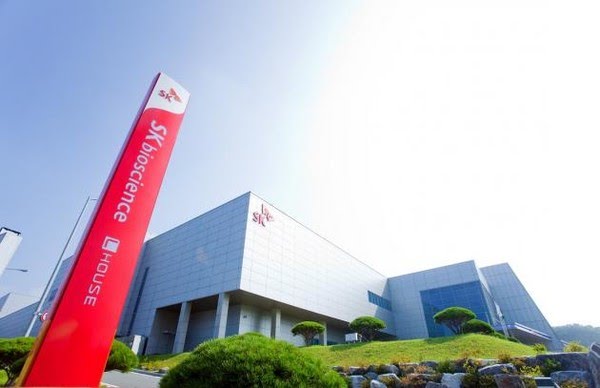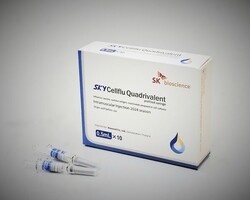SK bioscience posted a deeper annual loss for 2024 as increased research and development spending weighed on earnings. However, the company pointed to strong fourth-quarter revenue growth—driven by its acquisition of Germany’s IDT Biologika—as a sign of a potential turnaround.
The Korean vaccine maker on Wednesday reported a net loss of 50.1 billion won ($34.6 million) in 2024, reversing a 22.3 billion won profit from the previous year. Operating losses widened to 138.4 billion won from 12 billion won in 2023, while revenue fell 27.6 percent on-year to 267.5 billion won.

The company attributed the losses to spending on infrastructure and late-stage clinical trials, including construction of the Songdo R&PD Center, expansion of its Andong L House vaccine manufacturing plant, and its pneumococcal vaccine’s phase 3 trials.
Despite the losses, the revenue in the fourth quarter jumped 70 percent year-over-year to 156.8 billion won, boosted by the full integration of IDT Biologika following the completion of its acquisition in October last year.
SK bioscience framed the losses as a “strategic investment” necessary for long-term growth. “While these investments have weighed on short-term earnings, they position us for stronger global competitiveness,” a company official said.
The company is banking on IDT Biologika’s restructuring to improve financial performance. The German unit is undergoing reforms to enhance operational efficiency, secure new contracts, and increase production utilization.

SK bioscience is also pushing vaccine exports to boost revenue. SkyCellflu, its influenza vaccine, recently secured approval in Thailand for the Southern Hemisphere market, while SkyZoster, Korea’s best-selling shingles vaccine, is expanding into Southeast Asia.
Meanwhile, the company is strengthening its alliance with Sanofi. Following last year’s co-marketing deal covering five vaccines, including the hexavalent vaccine Hexaxim, the partnership has expanded. This year, SK bioscience will oversee domestic sales and distribution of Sanofi’s RSV preventive antibody Beyfortus (nirsevimab) and hepatitis A vaccine Avaxim.
The company expects a financial lift from its pneumococcal vaccine collaboration with Sanofi. The deal, signed late last year, includes an upfront payment of 75.5 billion won and up to 452.9 billion won in milestone payments tied to development progress.
“We plan to complete global phase 3 trials for our 21-valent pneumococcal vaccine this year and push forward with an even more advanced candidate,” the SK bioscience official said. “Despite current financial setbacks, we remain focused on R&D investment, global expansion, and operational efficiency—positioning ourselves for a strong comeback.”
Related articles
- SK bioscience, Sanofi expand partnership to strengthen vaccine cooperation in Korea
- Korea, US approve SK bioscience’s phase 3 trial for 21-valent pneumococcal vaccine
- Sanofi’s hexavalent pediatric vaccine added to Korea's national immunization program
- SK bioscience to get €50 mil. upfront from Sanofi for next-gen pneumococcal vaccine
- SK bioscience to begin clinical trials for mRNA-based Japanese encephalitis vaccine
- SK bioscience reports sharp Q3 revenue decline due to aggressive investment
- Sanofi Korea launches RSV preventive antibody Beyfortus
- Sanofi launches Beyfortus, an antibody shot to prevent RSV, in Korea
- SK bioscience completes WHO-led SARS virus international standard material project
- SK biopharmaceuticals secures PanTera deal to lock down scarce Ac-225 supply for RPT
- SK bioscience begins global P1/2 trials for mRNA-based Japanese encephalitis vaccine
- SK bioscience wins additional varicella vaccine orders in Latin America
- SK bioscience ships 750,000 flu vaccine doses to Southeast Asia, Latin America
- Gates Foundation polio lead, Antwerp researcher win 2025 Park MahnHoon Award
- SK biopharmaceuticals taps 1st female board chair, adds two outside directors
- SK bioscience appoints former MFDS head Lee as outside director
- SK bioscience to test flu shot with immune booster for older adults in phase 1/2 trial

